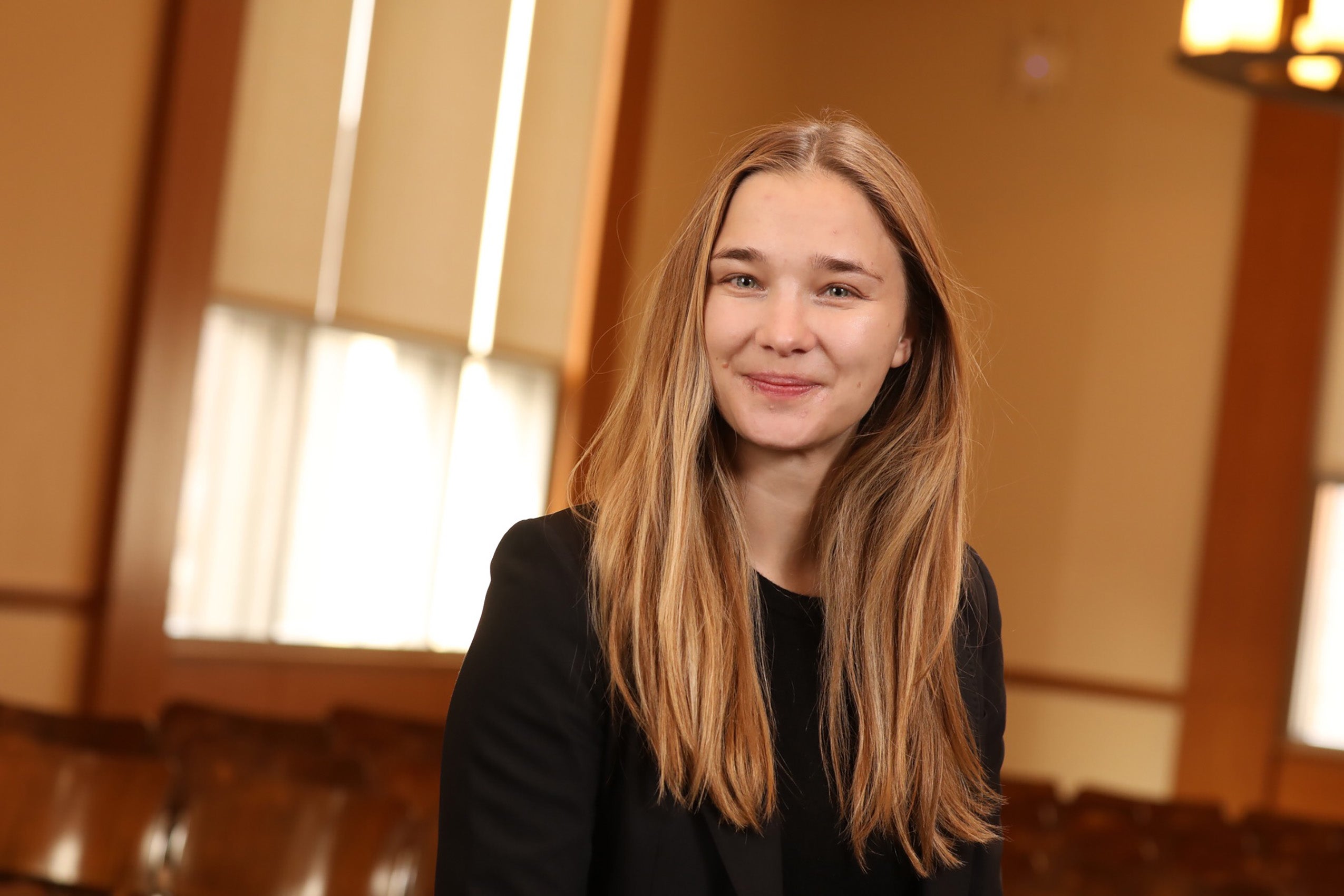In February 2019, Lauren Beck ’20 was elected as the 133rd president of the Harvard Law Review. On its own a significant achievement, her election helped create an unprecedented statistical anomaly. In 2019, every flagship law review of the top 16 U.S. law schools elected a woman to lead it. If they had been selected at random, the chance of an all-female cohort would be less than .0016%.
What made Beckʼs experience particularly unusual was that, for her, it didnʼt actually feel unusual. In February 2020, all 16 editors gathered at an event in Washington, D.C., to mark the 100th anniversary of the ratification of the 19th Amendment, which granted women the right to vote, and to celebrate the all-female sweep of law review elections. There, Beck attended panels with editors who described the sometimes gendered expectations they faced as female leaders in traditionally male-dominated spaces.
But to Beckʼs happy surprise, she felt very little of that pressure on the Harvard Law Review, which she describes as so “thoughtful about its own decision-making process” and “fundamentally introspective about inclusion and equality” that being elected or running it “as a woman rather than a man never felt to me personally as challenging as one might expect it to be.” That type of environment is incredibly unusual—and the success of female editors in chief in her year remains a misleading signal, she notes, in a profession that still suffers from significant gender disparities in law firm partnerships, courtroom appearances, legal academia and the federal judiciary.
The unprecedented wave of female editors highlighted a reality that Beck has long understood: Success depends not just on smarts and hard work, but also on access to opportunities and institutions. Beckʼs parents and step-parents were each the first in their families to go to college, except for her father, who did not finish high school. A construction worker-turned-salesman, her father was one of the smartest people she ever knew. But she also remembers watching as he was denied promotions despite excelling in his work because his GED was viewed as no substitute for a college education.
Committed to lowering barriers to education, after college Beck joined Codecademy, an educational startup that taught computer programming all over the world, largely for free. Having been an English major, she knew little about technology. “ʻIʼll figure out what tech is as an industryʼ was about the level of sophistication I had at that moment,” she says.
But Beck always had law school in the back of her mind, knowing that she wanted to pursue a career that combined writing and solving problems that mattered to people. Once she got here, her penchant for writing and high-stress atmospheres made her a good fit at the Harvard Law Review, which consumed most of her time.
The Harvard Law Review is one of the oldest operating student law reviews in the country. But to Beck, it felt in some ways like another startup. With a 96-member editorial board that turns over completely every two years, she says, the Law Review “ends up very engaged in how do we think together and how do we make this product as a group and a culture that produces something and has certain values.”
As its president, Beck continued her commitment to lowering barriers to entry. She credits prior boards with instituting efforts to increase diversity on the journal, a process the Law Review was forced to defend the year she joined, as it faced a lawsuit criticizing the organization’s holistic review process as discriminating against white men. (The lawsuit was dismissed.) Beck and her colleagues also focused on making the Law Review competition more inclusive for students with disabilities by working with representatives from the Disabled Law Students Association to improve its accommodations process.
Beck also thought of accessibility more broadly, not just focusing on who edits the Law Review or which authors get published, but also as a metric for good writing. She put a premium on what she views as accessible writing. In academia, she says, “sometimes things will be written inscrutably, and thatʼs sometimes treated as a good thing. Thatʼs not a good thing.”
Beck recalls her best friend from Columbia—a first generation American and the second in her family to go to college—worrying that she must not belong there because she could not understand some of the texts she was assigned in her classes. At the time, Beck casually responded that their assigned texts were just horribly written. The friend later said that her simple statement made her realize for the first time that she did belong in college, but that academic writing was designed to make her feel as if she did not. “Thereʼs basically no excuse [for that]”, says Beck. “Itʼs a very small act of social grace to write things in a way that doesnʼt make people feel stupid. Thatʼs something that legal academia could get better at doing more consistently.”
***

